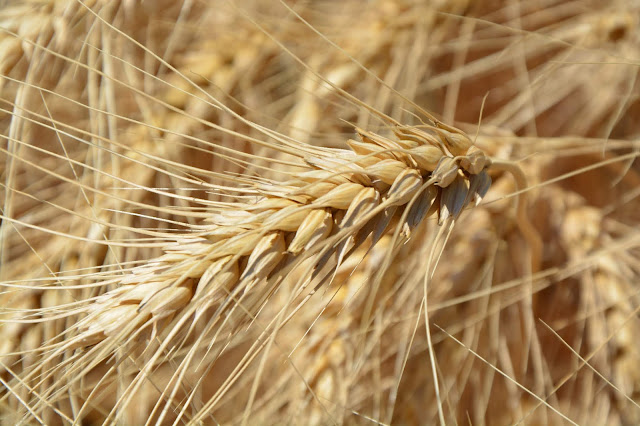Wheat and Tares
I love the translation of certain passages of Scripture in
the King James Version (KJV). Some words are just cooler to me in 17th
century English. One of those words is tares. A tare is a weed and if you were
a farmer in the first or 17th or 21st century, this word
is bad news. Jesus tells us about tares in a parable in Matthew 13. It is the
second agricultural parable He tells in the chapter.
Matthew 13:24-30 - Another parable put he forth unto them,
saying, The kingdom of heaven is likened unto a man which sowed good seed in
his field: But while men slept, his enemy came and sowed tares among the wheat,
and went his way. But when the blade was sprung up, and brought forth fruit,
then appeared the tares also. So the servants of the householder came and said
unto him, Sir, didst not thou sow good seed in thy field? from whence then hath
it tares? He said unto them, An enemy hath done this. The servants said unto
him, Wilt thou then that we go and gather them up? But he said, Nay; lest while
ye gather up the tares, ye root up also the wheat with them. Let both grow
together until the harvest: and in the time of harvest I will say to the
reapers, Gather ye together first the tares, and bind them in bundles to burn
them: but gather the wheat into my barn.
This passage is full of great points, but I’ll focus on
verses 29-30. The owner of the field must have been pretty ticked off to
discover that his planting had been sabotaged by his enemy. Fortunately,
instead of responding out of frustration, hate, or anger, he chose to do what
was wise. He knew that attempting to get rid of the tares could result in the
destruction of his whole crop. Instead, he decided to wait until the weeds
could easily be distinguished from the wheat before eliminating them.
Today, many are asking why God is allowing evil to flourish
and why He doesn’t just intervene and pour out His wrath on those who don’t
serve Him. Like the farmer in this parable, God will not destroy the wicked at
a time when it could ruin His people. His desire is for a full harvest.






Comments
Post a Comment